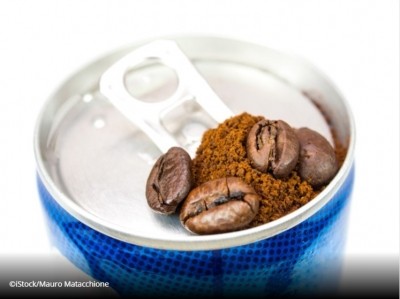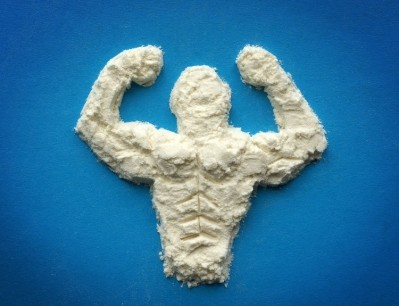Creatine, L-arginine and L-leucine supplement may up energy expenditure and stamina: Study

The supplement, which also contains vitamins, amino acids and caffeine, appears to aid in increasing both aerobic and anaerobic alactic energy contribution, a process in which short, intense bursts of energy are created for speed and power without the production of lactic acid.
“Our initial hypothesis that multi-ingredient pre-workout supplementation (MIPS) could be a relevant strategy to increase energy expenditure is confirmed based on the findings of greater contribution of the oxidative system,” the team says.
“These results are therefore of interest to people who wish to increase energy expenditure in high-intensity interval exercise (HIIE) session.”
Nutritional aids that give athletes a mental or physical edge while exercising or competing are becoming increasingly common now amongst consumers interested in an active and healthy lifestyle.
The benefits are of course known amongst the more professional athlete, where ingredients such as creatine, arginine, leucine, valine, isoleucine, tyrosine and caffeine are strongly linked to an enhanced sympathetic response, substrate availability, and muscle contraction.
Acute ingestion of MIPS has been shown to optimise performance during continuous runs to exhaustion as well as during tests of explosive power, anaerobic power and maximum strength.
However, there is little evidence about the potential impact of MIPS on energy systems contribution and overall oxygen consumption.
Study details
In this study, the team from São Paulo state university think that knowing which system is affected the most by MIPS ingestion could tailor nutritional requirements in order to optimise specific training sessions and/or increase energy expenditure for particular populations.
Led by Dr Camila Padilha, post-doctoral researcher at the university, the team enrolled twelve physically active and healthy men.
Over the course of two sessions, participants randomly consumed the MIPS or placebo capsules one hour before performing a HIIE session.
The MIPS used in this study was a commercially available product and contained a proprietary blend (10.2 milligrams (mg) of caffeine (0.4mg) creatine monohydrate (3 mg), L-Arginine (2 mg), L-Leucine (2 mg), L-Valine (1mg), L-Isoleucine (1mg) and L-Tyrosine (0.8mg).
Other ingredients included calcium (180mg), folic acid (500 micrograms (mcg)), vitamin C (250mg), niacin (35mg), vitamin B1 (2mg), biotin (20mcg), vitamin B6 (50mg), vitamin B2 (2mg) and vitamin B12 (9.94mcg).
Meanwhile the placebo mixture was a blend of maltodextrin and juice containing maltodextrin, dyes, acidulants and flavourings. This was diluted in 250 millilitres (ml) of water. Both placebo and MIPS mixture were identical in colour and flavour.
They were then asked to complete a series of HIIE sessions that involved running bouts of 15 seconds on the treadmill at 120% of the maximum aerobic speed (MAS), interspersed with 15 seconds of passive recovery.
Blood lactate was collected at immediately post, 3, 5, and 7 min post exercise. The contribution of ATP-CP, glycolytic and oxidative systems was analysed at rest, during the HIIE sessions and for 20 min post.
Performance variables (time to exhaustion, number of efforts) and oxygen consumption were also analysed.
Results revealed that MIPS significantly increased the number of efforts performed (MIPS: 41 vs placebo: 36) as well as time to exhaustion (MIPS: 20.1 vs placebo: 17).
The team found no difference between supplements for both time spent above 90% V̇O2max (T90% V̇O2max) and excess post-exercise oxygen consumption (EPOC).
Consuming MIPS significantly increased the absolute oxidative energy system contribution by 23.8% and the absolute Adenosine Triphosphate – Creatine Phosphate (ATP-CP) contribution by 28.4% compared to placebo.
Further findings revealed there was only a non-significant tendency for a higher glycolytic system contribution after MIPS ingestion.
Caffeine’s proven effects
“It has been demonstrated that caffeine positively influences in central fatigue and muscular endurance by its direct effect on muscle anaerobic energy provision and its ability to increase muscle contractility,” the team writes.
“Caffeine acts as an adenosine receptor antagonist and has been shown to acutely improve cognition as well as performance during endurance, power, and resistance exercise when consumed in dosages between 3 and 6 mg/kg bodyweight.
“The caffeine content of this MIPS (400 mg) is in that acceptable range for most individuals,” they add.
Commenting on the role of creatine monohydrate, the team says that the supplementation of creatine monohydrate over time is able to increase performance in high intensity exercises, prevent injuries and help in the recovery process.
In addition, the effects of creatine monohydrate have been studied as a possible therapeutic strategy in neurodegenerative, metabolic and behavioural diseases.
“Thus, although MIPS has these ingredients, they probably played a marginal role in the results found due to acute supplementation and caffeine is probably the only ingredient that may have contributed.”
Source: Journal of the International Society of Sports Nutrition
Published online ahead of print: doi.org/10.1186/s12970-020-00357-6
“Multi-ingredient pre-workout supplementation changes energy system contribution and improves performance during high-intensity intermittent exercise in physically active individuals: a double-blind and placebo-controlled study.”
Authors: Caique Figueiredo et al.














